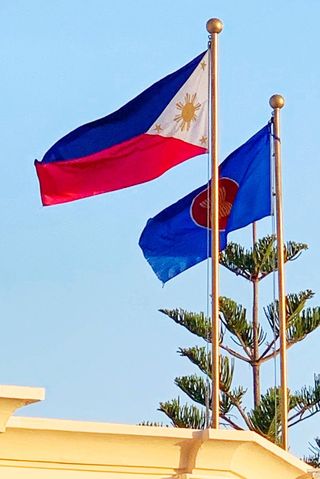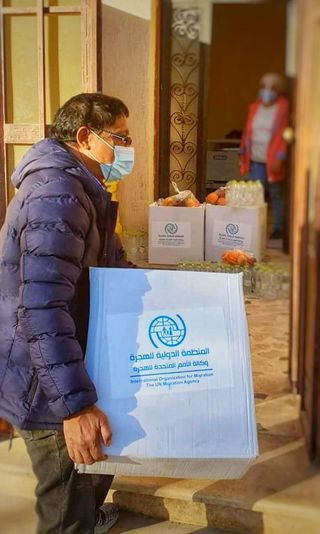Filipinos in Libya urged to be cautious as Covid-19 cases rise to 128

Image from the Embassy of the Philippines in Tripoli
MANILA, Philippines — The Embassy of the Philippines in Tripoli, Libya on Tuesday advised Filipinos there to take the necessary precautions against Covid-19 as the total number of cases among the Filipino community climbed to 128 with at least six reported deaths.
On Monday, two Filipino oil workers were reported to have contracted the disease, the embassy said in a statement.
These new cases, according to the embassy, are in addition to the 23 Filipinos who were reported to have tested positive for Covid-19 last December.
“Our kababayan should continue to exercise the necessary precautions as more of them could get infected due to the continuing surge in the number of Covid-19 cases in Libya,” Embassy Chargé d’Affaires and Head of Mission Elmer Cato said.
“Filipino nurses and other hospital workers are most vulnerable because they are right there in the frontline serving alongside Libyan doctors and nurses,” he added.
Article continues after this advertisementThe embassy said that of the number of Filipinos who tested positive for Covid-19, 102 are nurses and other hospital personnel in Tripoli, Benghazi, Misurata and other places in Libya.
Article continues after this advertisementThe rest are oil workers, office staff, and dependents.
Most of the Covid-19 cases among Filipinos in Libya have already recovered with only 15 “still in the active stage.”
Among the Filipinos who succumbed to Covid-19 are two hospital workers, two dependents of hospital workers, an oil worker and a college instructor, according to Cato.
Two have been buried in Libya while the remains of the other four are to be repatriated upon the request of their family members, he added.
Cato, meanwhile, raised the possibility that Covid-19 infections among Filipinos in Libya could be higher with the embassy receiving reports that several Filipinos who tested positive for the disease would not want their condition known.

An embassy staffer carrying boxes of aid for OFWs. Image from the Embassy of the Philippines in Tripoli
He said the embassy has been distributing donated face shields, masks and gloves to the Filipino community in Libya to help protect them from infection.
The embassy has also been providing food assistance from the International Organization for Migration (IOM) as well as medicines, vitamins, and other necessities for Filipinos who tested positive for the disease from donated funds, which are also being used to cover the cost of Covid-19 screening and other tests for infected Filipinos.
The total number of Covid-19 cases recorded in Libya since March 2020 has now reached 119,402, Cato said, citing the latest update from the National Center for Disease Control (NCDC).
EDV
For more news about the novel coronavirus click here.
What you need to know about Coronavirus.
For more information on COVID-19, call the DOH Hotline: (02) 86517800 local 1149/1150.
The Inquirer Foundation supports our healthcare frontliners and is still accepting cash donations to be deposited at Banco de Oro (BDO) current account #007960018860 or donate through PayMaya using this link.